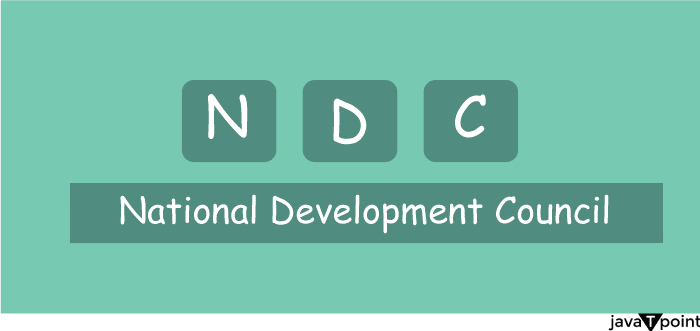What is the full form of NDCNDC: National Development CouncilThe National Development Council (NDC) is a high-level policy-making body in India established in 1952 to promote and coordinate the country's economic and social development. The Prime Minister of India chairs it and consists of the Chief Ministers of all states, members of the Planning Commission, and other senior government officials. The NDC is critical in formulating development policies, setting targets and priorities, and allocating resources for development programs. It has helped formulate several Five-Year Plans and has been instrumental in promoting industrialization, agriculture, infrastructure development, and social welfare programs. 
The NDC has been reconstituted as the NITI Aayog (National Institution for Transforming India), which serves as a policy think tank and advisory body to the government. Nonetheless, the NDC remains an important forum for the central and state governments to collaborate and coordinate on matters of national development. Composition of NDCThe National Development Council (NDC) is a high-level policy-making body in India that comprises the following members: 1. Chairperson: The Prime Minister of India is the chairperson of the NDC. 2. Members: The members of the NDC include:
The Chief Ministers of states and UTs are the most important members of the NDC, and their participation is crucial for ensuring the effective implementation of development policies. The NDC meets periodically to discuss and review development policies, set targets and priorities, and allocate resources for development programs. Objectives of NDCIndia's National Development Council (NDC) was established to promote and coordinate economic and social development efforts at the national and state levels. The NDC is crucial in formulating development policies, setting targets and priorities, and allocating resources for development programs. Some of the specific objectives of the NDC include: 1. Formulating and implementing development plans: The NDC is responsible for formulating and implementing development plans for the country. The NDC works closely with the Planning Commission (now replaced by NITI Aayog) to prepare Five-Year Plans that guide the country's development efforts. 2. Coordinating development efforts: The NDC is critical in coordinating development efforts between the central and state governments. It helps to ensure that development policies and programs are implemented effectively across the country. 3. Allocating resources: The NDC allocates resources for development programs. It helps to ensure that resources are distributed fairly and effectively to meet the development needs of different regions and sections of society. 4. Promoting industrialization: The NDC has played an instrumental role in promoting industrialization in India. It has helped to create a favorable policy environment for industrial growth and encouraged setting up industries in different parts of the country. 5. Promoting agriculture: The NDC has also played a key role in promoting agriculture in India. It has helped formulate policies and programs supporting agricultural growth and encouraged the adoption of modern farming practices. 6. Promoting infrastructure development: The NDC has been instrumental in promoting infrastructure development in India. It has helped to identify infrastructure needs and has encouraged the development of transportation, energy, and communication networks. Functions of NDCIndia's National Development Council (NDC) was established to promote and coordinate economic and social development efforts at the national and state levels. The NDC is crucial in formulating development policies, setting targets and priorities, and allocating resources for development programs. Some of the specific functions of the NDC include:
Next Topicfull-form
|
 For Videos Join Our Youtube Channel: Join Now
For Videos Join Our Youtube Channel: Join Now
Feedback
- Send your Feedback to [email protected]
Help Others, Please Share










